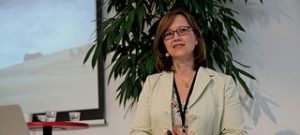By Rachel Happe, Co-Founder of The Community Roundtable.
 If you had asked me a decade ago whether I wanted to start a company, the answer would have been a resounding no. But a funny thing happened on the way to the circus – technology, communications and organizational development collided in a way where my experiences gave me unique insight – some of which is personal and some of it through my previous work.
If you had asked me a decade ago whether I wanted to start a company, the answer would have been a resounding no. But a funny thing happened on the way to the circus – technology, communications and organizational development collided in a way where my experiences gave me unique insight – some of which is personal and some of it through my previous work.
I am a minister’s daughter and not just any minister, one who worked in a church where the congregation was responsible for hiring and firing their leaders. And as a child I had an odd fascination with church meetings and listening to people resolve issues collectively. I also watched as my father had to balance factions in an intense culture (in the midst of Cambridge, MA where people do not lack for opinions). It was its own education in people, relationships and power dynamics.
 Later on, I had the opportunity to row on a crew team and first experienced the concept of swing, which profoundly impacted how I thought of group performance. I was never the best student (or the best athlete) but I realized that I could be an important member of the best team and that together, when there is swing, groups can do profound things.
Later on, I had the opportunity to row on a crew team and first experienced the concept of swing, which profoundly impacted how I thought of group performance. I was never the best student (or the best athlete) but I realized that I could be an important member of the best team and that together, when there is swing, groups can do profound things.
Professionally, I’ve had almost nine lives; as a research assistant looking at health care systems, working in government, as an analyst assessing operational strategies, managing software products, managing start-up teams and as a technology market analyst. I’ve had experience working with the implications of organizational structures, with the application of cutting edge technologies (I was building SaaS-based ideation and partner portals in the late 90s), and from my youth I understood how you manage in environments you can’t control.
 So now I’m eating frogs – our team’s term for getting critical but not necessarily inspiring things done – and helping to lead The Community Roundtable. I believe passionately that new communications environments enable individuals to be rewarded proportionately to what they contribute because those contributions can now be seen by everyone in an online community. For me, this means more equality and more access for more people – without the traditional barriers that limited talented people from succeeding; like the school you went to, your family’s social circles or where you live. It also gives individuals the responsibility and the opportunity to determine their own contribution balance. For organizations, it means lowering the transaction costs of creating and distributing value. My job at TheCR is to help organizational leaders understand how to execute on this opportunity by applying what we call community management instead of traditional management approaches. In the end, my hope is that I can improve lives by improving people’s control over the work they do.
So now I’m eating frogs – our team’s term for getting critical but not necessarily inspiring things done – and helping to lead The Community Roundtable. I believe passionately that new communications environments enable individuals to be rewarded proportionately to what they contribute because those contributions can now be seen by everyone in an online community. For me, this means more equality and more access for more people – without the traditional barriers that limited talented people from succeeding; like the school you went to, your family’s social circles or where you live. It also gives individuals the responsibility and the opportunity to determine their own contribution balance. For organizations, it means lowering the transaction costs of creating and distributing value. My job at TheCR is to help organizational leaders understand how to execute on this opportunity by applying what we call community management instead of traditional management approaches. In the end, my hope is that I can improve lives by improving people’s control over the work they do.
One of the things that I am most proud of is that as an organization we collaborate with our members and clients to create value that neither one of us could deliver on our own. Recently for me, that meant working closely with a client to build a training program for internal community managers. The training program consists of short videos paired with worksheets that allow participants to immediately translate what they learn into actionable plans. While we had the content, our client pushed us to create a format that allowed part-time community managers to immediately put best practices to use. It’s a great example of how to create value that is a win for the client, a win for us and ultimately a win for other clients who need similar programs to make their social business initiatives a success.
—–
Did you know that 95% of TheCR Network members agree that the content and peer input improves the quality of their work? It’s true!
Membership in TheCR Network saves community and social business leaders time and improves the quality of their work by connecting them quickly with peers, experts and curated information. Learn how joining TheCR Network can improve the work you do.
